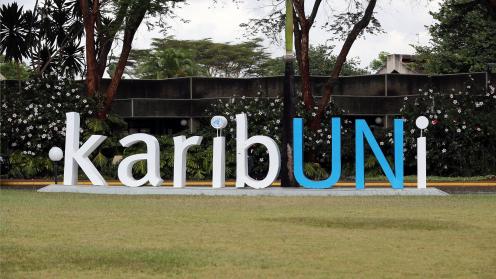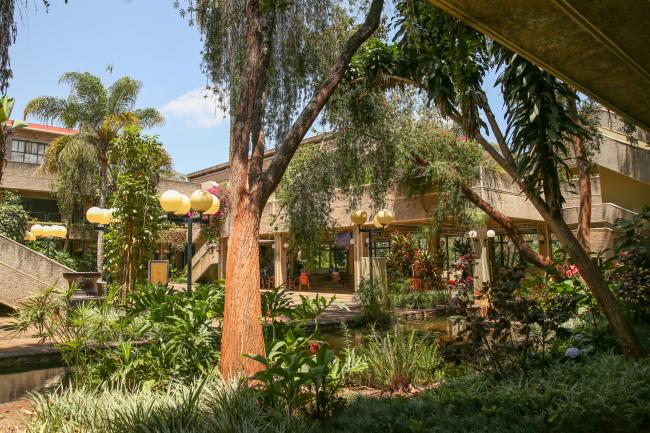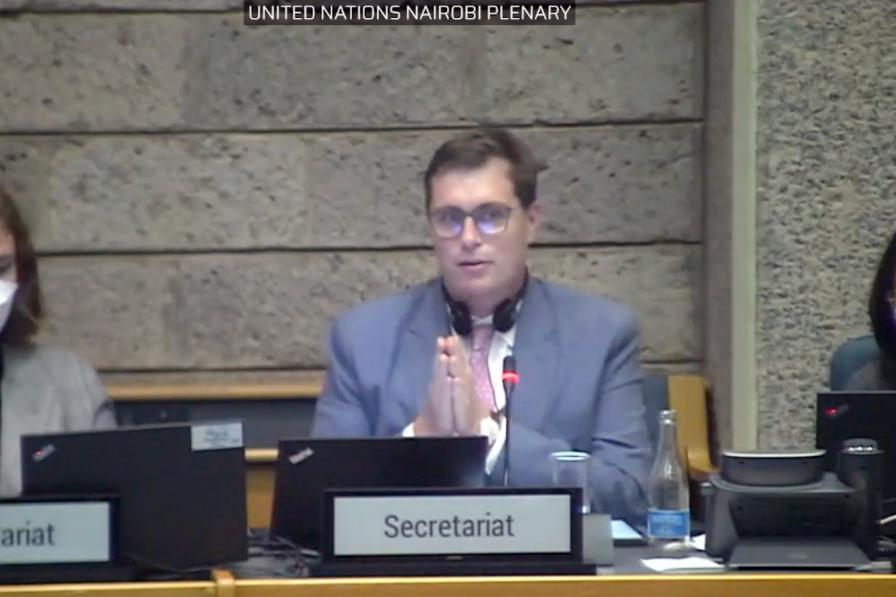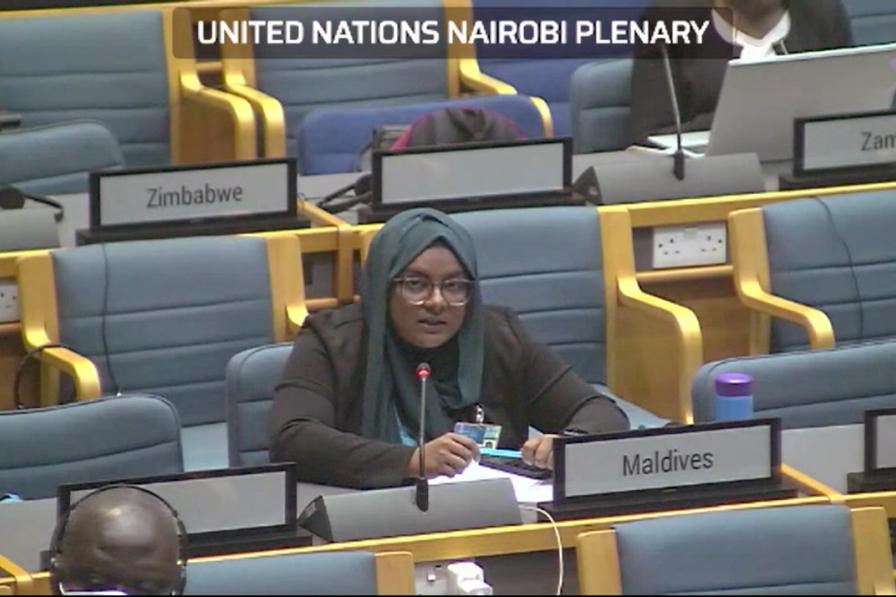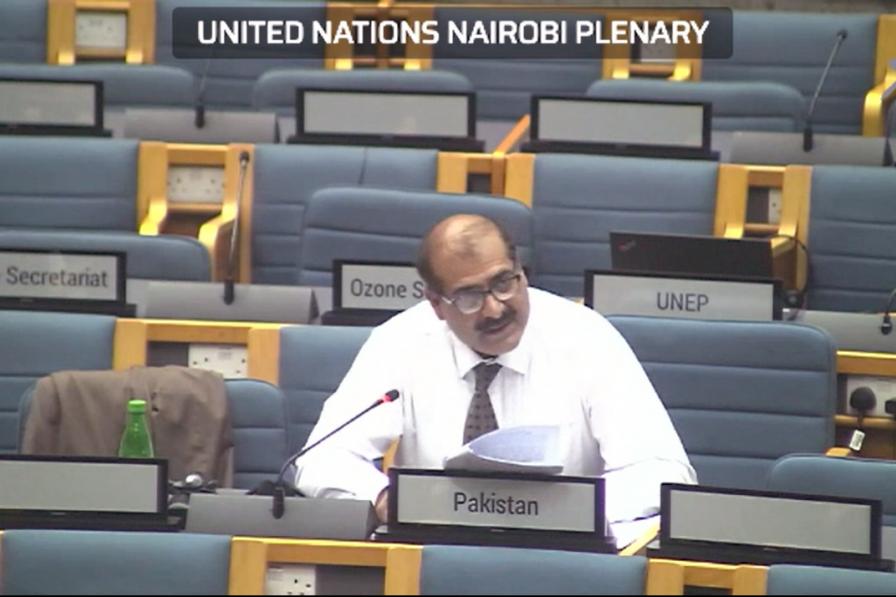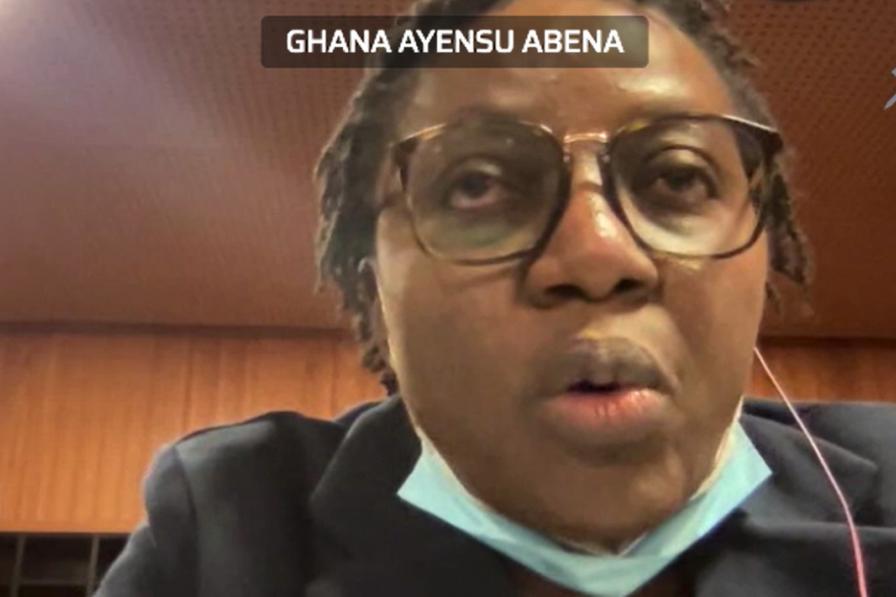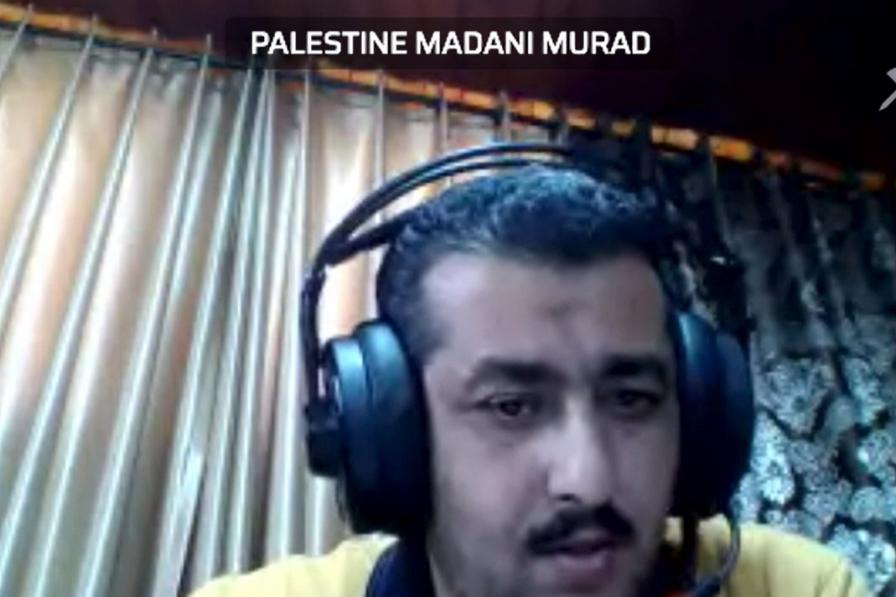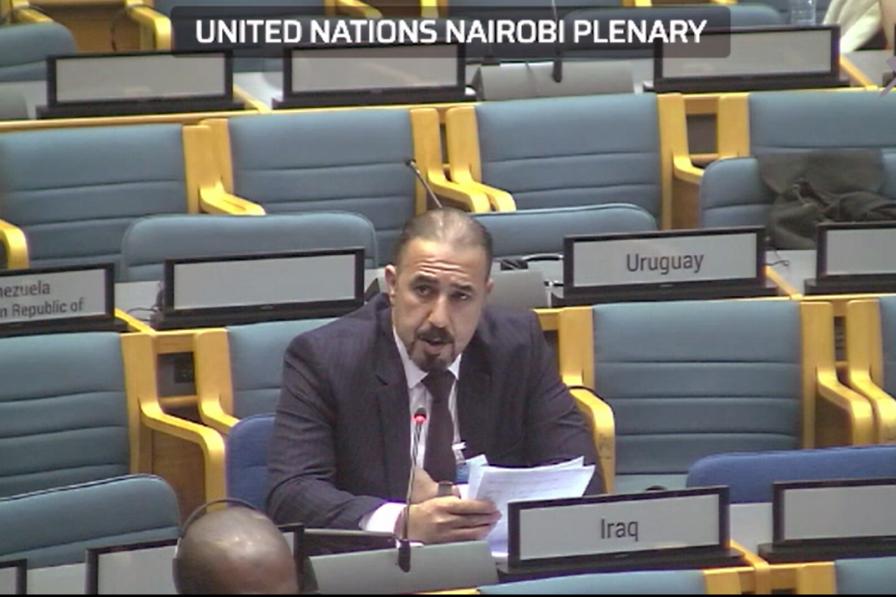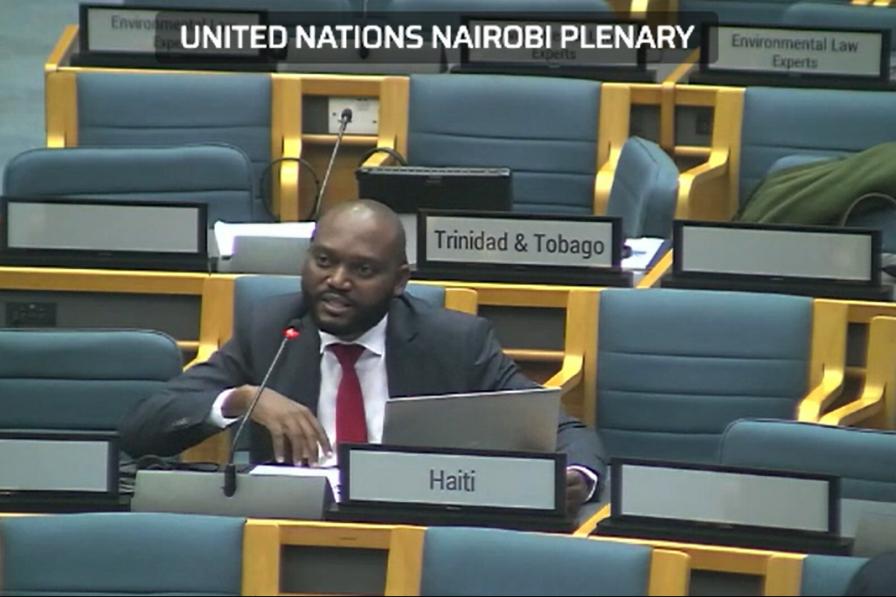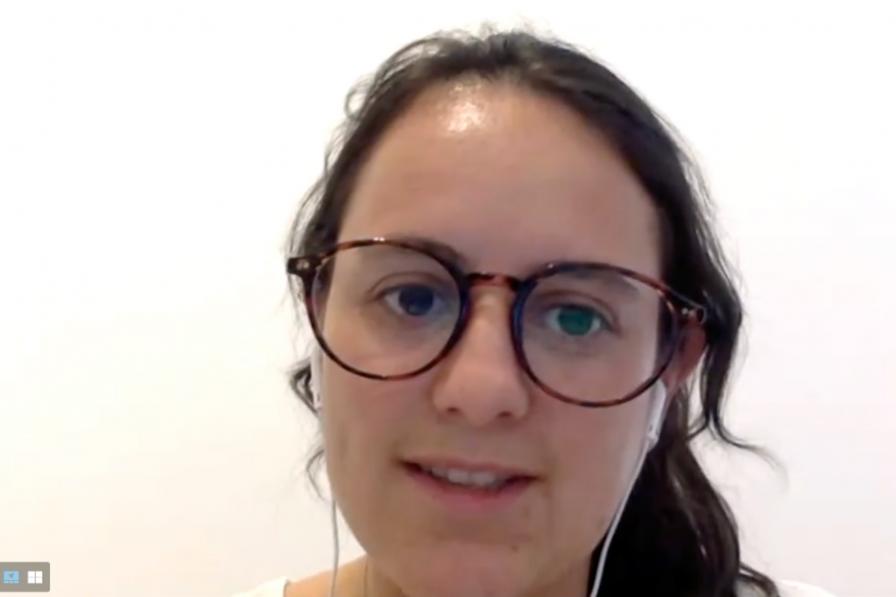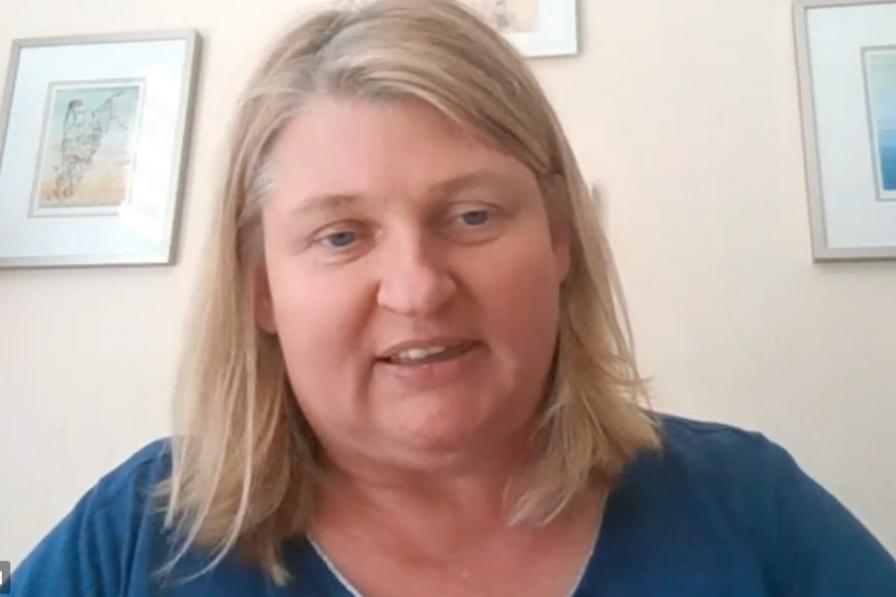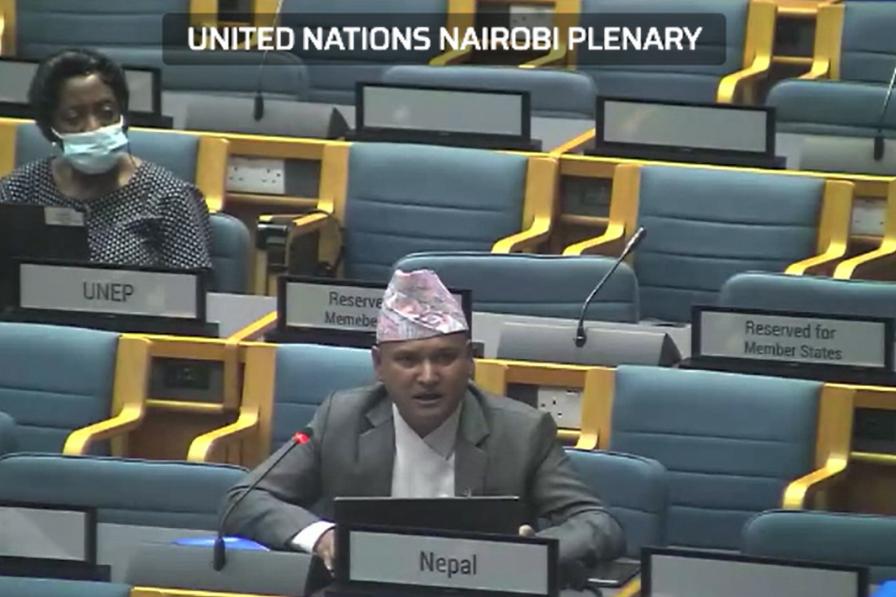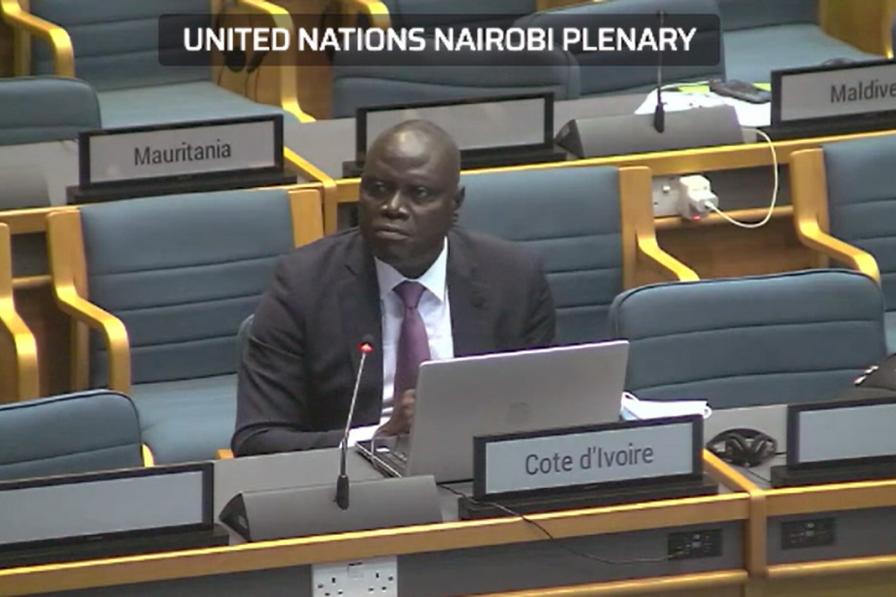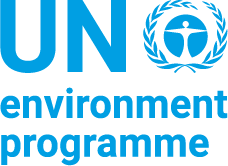The third day of the resumed First Global Meeting of the National Focal Points Under the Fifth Programme for the Development and Periodic Review of Environmental Law (Montevideo Programme V) and decided to postpone further discussions on the topic to Thursday. Delegates also discussed arrangements for partnerships and stakeholder engagement for implementation of the Programme, using a series of questions prepared by the Secretariat as guidance.
Co-Chair Marcello Cousillas, Uruguay, presented the “non-paper,” explaining that it included proposals for a brief set of paragraphs describing the Global Meeting’s decisions on the topic, an annex outlining the priority areas and cross-cutting activities, and another annex outlining categories and criteria for assessing technical legal assistance requests.
Delegates expressed general support for the non-paper, with many indicating it goes in the right direction toward achieving a balance between flexibility and focus. The Group of Latin America and the Caribbean (GRULAC), the Netherlands, the UK, the US, Saint Lucia, and others requested postponement of discussions to allow time for countries to consider the non-paper and consult regionally. Delegates agreed to return to the matter during Thursday’s session.
On partnerships and stakeholder engagement, the Secretariat requested guidance on:
- key objectives of a partnership and stakeholder engagement strategy;
- principles to consider in developing a partnership strategy under the Programme;
- elements that should be included in a partnership strategy under the Programme;
- how priority areas for Programme implementation relate to the development of a partnership and stakeholder engagement strategy; and
- good practices for partnership engagement which can inform a partnership strategy under the Programme.
The African Group, the Netherlands, and Saint Lucia provided detailed responses to the questions on key objectives, principles, and strategy elements. The Netherlands also suggested the Secretariat borrow elements from the UN Environment Programme’s Partnership Strategy and, supported by Romania, recommended that separate strategies be presented on partnerships and on stakeholder engagement. Saint Lucia suggested creating a list of stakeholders that the Programme would like to engage with.
Switzerland urged working with all UN organs to promote synergies in environmental law matters. He said the Programme should seek partnerships with all entities that may contribute to it, including academia, courts, and networks of jurists. The UK said the partnership strategy should seek to increase visibility of the Montevideo Programme within the UN system and stressed the value of pursuing a network of legal officers among relevant UN agencies and MEA secretariats that would facilitate coordination on environmental law matters. Burundi urged considering the ways in which local communities can contribute to the Programme. The Major Group for Children and Youth stressed the need for national focal points to engage youth, and suggested the Programme create focal points for youth. The International Center for Comparative Environmental Law urged partnerships to increase training in environmental law at the university and magistrate levels.
The Secretariat invited delegates to submit all suggestions in writing. He said a draft strategy or strategies would be prepared for consideration by the Programme’s Steering Committee at its next meeting slated for October 2022.
To receive free coverage of global environmental events delivered to your inbox, subscribe to the ENB Update newsletter.
